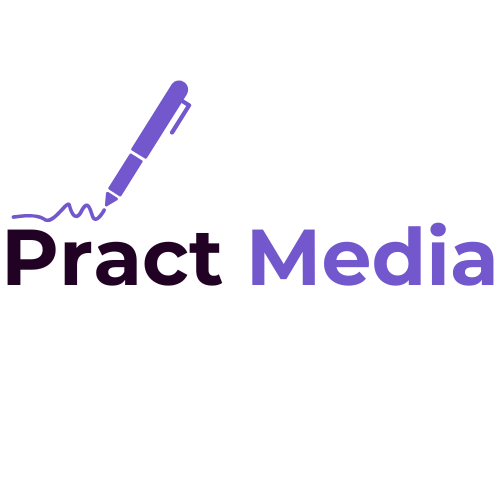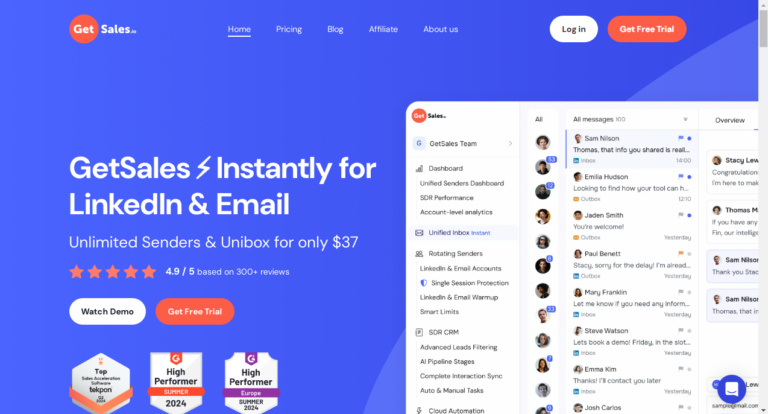How to Start a Lead Generation Business: A Comprehensive Guide
Lead generation is the lifeblood of any successful enterprise.
The ability to consistently attract and convert potential customers
is critical to sustaining growth and achieving long-term success.
A lead generation business focuses on delivering qualified leads to clients,
helping them expand their customer base and increase revenue.
This article will provide a comprehensive guide on how to start a lead generation business,
exploring its history, significance, current trends, and future implications.
Additionally, it will offer actionable insights for aspiring entrepreneurs.
Understanding Lead Generation
What is Lead Generation?

Lead generation refers to identifying
and cultivating potential customers (leads) who have shown interest in a product or service.
This process involves capturing, nurturing,
and converting leads into paying customers.
Businesses rely on lead generation to fill their sales pipelines,
making it a crucial component of their marketing and sales strategies.
The History of Lead Generation
The concept of lead generation has evolved significantly over the years.
In the past, businesses relied on traditional methods such as cold calling,
direct mail, and print advertising to generate leads.
With the advent of the internet and digital marketing,
lead generation has shifted towards online channels.
The introduction of search engines, social media platforms,
and email marketing has revolutionized
how businesses attract and engage with potential customers.
The Significance of Lead Generation
The Role of Lead Generation in Business Growth
Lead generation is the cornerstone of business growth.
It enables companies to consistently attract new customers,
build brand awareness, and increase revenue.
A steady flow of qualified leads ensures
businesses maintain a healthy sales pipeline and achieve their targets.
The Economic Impact of Lead Generation
The lead generation industry plays a significant role in the global economy.
According to market research,
the global lead generation market is expected to reach $3.2 billion by 2027,
driven by the increasing demand for digital marketing services and the
growing adoption of advanced technologies
such as artificial intelligence (AI) and machine learning (ML).
Current Trends in Lead Generation
The Rise of Digital Marketing
The shift from traditional to digital marketing has transformed the lead generation landscape.
Businesses increasingly leverage digital channels such as social media,
search engines, and content marketing to attract and engage potential customers.
Digital marketing offers greater targeting precision, cost-effectiveness,
and scalability, making it the preferred choice for lead generation.
The Impact of AI and Automation
AI and automation are revolutionizing lead generation by streamlining processes and enhancing efficiency.
AI-powered tools can analyze vast amounts of data to identify potential leads,
predict customer behavior, and personalize marketing campaigns.
Automation platforms enable businesses to automate repetitive tasks such as email marketing,
lead scoring and follow-up, allowing them to focus on high-value activities.
The Importance of Data Privacy
With the increasing focus on data privacy,
businesses must adhere to strict regulations such as
the General Data Protection Regulation (GDPR) and the California Consumer Privacy Act (CCPA).
Ensuring compliance with these regulations is essential
for building trust with potential customers and avoiding legal repercussions.
How to Start a Lead Generation Business
Market Research and Niche Selection

Before starting a lead generation business,
conducting thorough market research to identify potential niches and target audiences is crucial.
Focus on industries with high lead demand, such as real estate,
finance, healthcare, and technology.
Selecting a specific niche allows you to tailor your services and marketing efforts
to meet the unique needs of that industry,
increasing your chances of success.
Creating a Business Plan
A well-structured business plan is essential for the success of your lead generation business.
Your business plan should include the following components:
Executive Summary: An overview of your business,
including your mission statement, goals, and objectives.
Market Analysis: A detailed analysis of your target market,
competitors, and industry trends.
Service Offerings: A description of the lead generation services you will provide,
such as content marketing,
email marketing, SEO, or PPC advertising.
Marketing and Sales Strategy: A plan for attracting and converting leads,
including your pricing strategy and sales funnel.
Financial Projections: A forecast of your expected revenue, expenses, and profits.
Building a Website and Online Presence
Having a solid online presence is crucial for the success of your lead generation business.
Start by building a professional website that showcases your services, portfolio,
and client testimonials.
Your website should be optimized for search engines (SEO)
to attract organic traffic and generate leads. Additionally,
establish a presence on social media platforms such as LinkedIn,
Facebook and Twitter to reach a broader audience
and engage with potential clients.
Acquiring and Nurturing Leads
To acquire leads, you can use various digital marketing strategies, such as:
Content Marketing: Create high-quality, informative content that addresses
the pain points of your target audience.
This content can be in the form of blog posts, eBooks, whitepapers, or videos.
SEO: Optimize your website and content for search engines
to increase visibility and attract organic traffic.
PPC Advertising: Run targeted pay-per-click (PPC) campaigns on platforms
like Google Ads and Facebook Ads to drive traffic to your website.
Social Media Marketing: Leverage social media platforms to connect
with potential leads and promote your services.
Once you have acquired leads,
you must nurture them through personalized email campaigns,
follow-up calls, and targeted content.
Lead nurturing helps build relationships with potential customers and increases
the likelihood of conversion.
Implementing a CRM System
A Customer Relationship Management (CRM) system is valuable for managing leads and clients.
It lets you track lead interactions, monitor sales activities, and manage client relationships.
Popular CRM systems include Salesforce,
HubSpot, and Zoho CRM. Implementing a CRM system will help you streamline your
lead generation process and improve your overall efficiency.
Establishing Partnerships and Networks
Building partnerships with other businesses and professionals
can help you generate more leads and expand your client base.
For example, you can collaborate with marketing agencies, web developers,
and consultants who can refer clients to your lead generation business.
Additionally, attending industry events and networking with potential clients
It also can help you establish valuable connections.
Measuring and Optimizing Performance
To ensure the success of your lead generation business,
it is essential to measure and optimize your performance continuously.
Use key performance indicators (KPIs) such as lead conversion rate,
cost per lead, and customer acquisition cost to assess the effectiveness of your strategies.
Regularly analyze your data, identify areas for improvement,
and make necessary adjustments to your marketing and sales efforts.
Challenges and Considerations
Competition
The lead generation industry is highly competitive,
with many businesses vying for the same clients.
To stand out, offering unique value propositions,
such as specialized expertise, superior customer service,
or innovative solutions, would be best.
Differentiating yourself from competitors
will increase your chances of attracting and retaining clients.
Staying Updated with Industry Trends
The lead generation landscape constantly evolves,
with new technologies, strategies, and regulations emerging regularly.
Staying updated with industry trends and continuously learning
is essential for maintaining your competitive edge.
To stay informed, subscribe to industry newsletters,
attend webinars, and participate in online forums.
Managing Client Expectations
Managing client expectations is critical to maintaining long-term relationships and ensuring customer satisfaction.
Be transparent about what you can deliver,
set realistic goals, and communicate regularly with your clients.
Regular updates and reports will help build trust and demonstrate the value of your services.
The Future of Lead Generation
The Role of AI and Machine Learning

AI and machine learning are likely to shape the future of lead generation.
These technologies have the potential
to revolutionize lead generation by enabling businesses to analyze vast amounts of data,
predict customer behavior, and personalize marketing campaigns at scale.
AI-powered chatbots, predictive analytics,
and automated lead scoring are examples of how AI transforms the industry.
The Shift Towards Inbound Marketing
Inbound marketing, which focuses on attracting leads through valuable content and experiences,
is becoming increasingly popular.
As consumers become more resistant to traditional advertising,
businesses shift towards inbound marketing strategies such as content marketing,
social media marketing, and SEO.
This trend will likely continue,
with businesses focusing on creating meaningful interactions with potential customers.
The Importance of Data Security and Privacy
As data breaches and privacy concerns become more prevalent,
companies must prioritize data security and privacy.
Implementing robust data protection measures and adhering to regulations such as
GDPR and CCPA will be essential for building trust
with potential customers and avoiding legal consequences.
important point
To be constantly on the top, you should complete your promises
if you promise something to your client, you have to leverage the result
this is how you always stay at the market and always generate more
clients with word of mouth
Conclusion
Starting a lead generation business offers significant opportunities for growth and success in today’s digital economy.
By understanding the history, significance, and current trends in lead generation,
you can position your business for long-term success.
Focus on conducting thorough market research, creating a solid business plan, building a robust online presence,
and continuously optimizing your performance.
With the right strategies and tools,
you can build a thriving lead-generation business that helps clients achieve their goals and drives economic growth.
This article is designed to provide a comprehensive understanding of how to start a lead generation business.
The insights and recommendations above
can help you establish a successful and sustainable business in this competitive industry.







